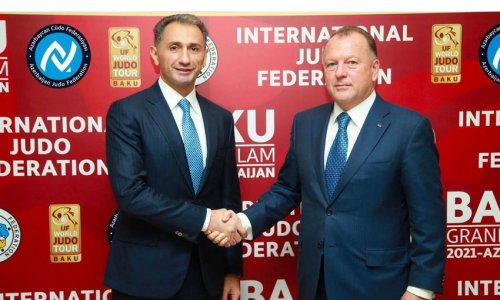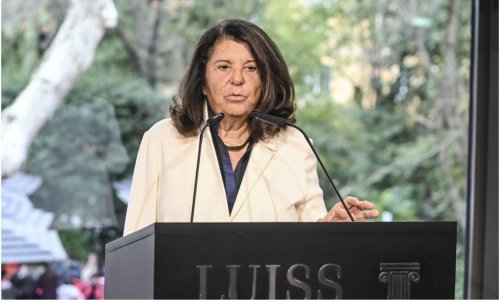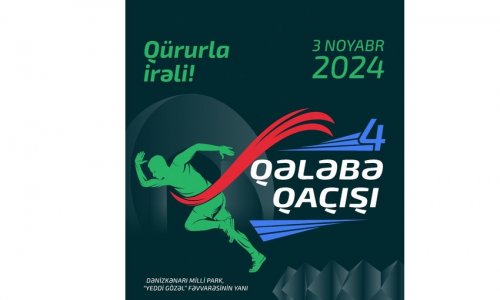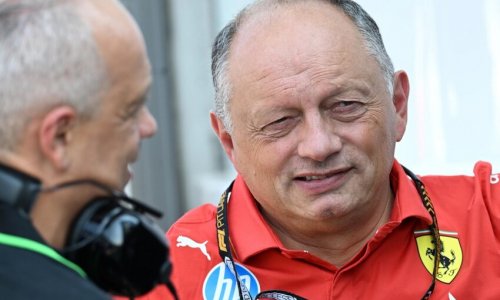The first time legendary tennis coach Nick Bollettieri laid eyes on a 10-year-old Anna Kournikova, his initial thought was: "Holy mackerel."
Even after a quarter of a century, the exact time and place of meeting is etched in the 84-year-old's mind with the precision of a radar gun -- 8.50 a.m., Court 40.
"This little girl comes and jumps in my ball basket and says, 'I'm here for the lesson!'" recalls the famously fiery coach behind such world number No. 1s as Andre Agassi, Jim Courier, and Monica Seles.
"I thought, 'Who the hell is this?'" adds Bollettieri, the image of a confident little girl with blonde pigtails becoming sharper in his mind.
"I didn't yell at her -- because it was unbelievable to see the spunk of a little girl just coming and saying 'I'm here. I'm ready.'"
Whether one of history's most marketable sportswomen was also ready for the intense media scrutiny that followed is another matter.
Just over a decade later, at the age of 22, Kournikova left the WTA Tour amid serious back injuries. She had reached No. 8 in the world, won two doubles grand slams alongside Martina Hingis, and made the semifinals of Wimbledon when she was just 16 years old.
Yet the most prized title of all, and the one that always eluded her, was a singles trophy.
Poker hands have since been named after the Russian beauty -- "A-K: Looks great, but doesn't win."
Then there were David Letterman's "Anna Kournikova Play of the Day" gags, which involved such belittling shots as her drinking from a water bottle.
Sex sells
But apart from her often overlooked sporting achievements, Kournikova, who declined an interview with CNN, won in ways the sport had rarely seen before.
She won sponsorship deals worth millions and the affections of people who didn't ordinarily watch tennis. Hell, she even won the Internet, becoming the most Googled sportswoman on the planet.
Meanwhile, the infamous "Anna Kournikova" computer virus lured victims with an email purporting to show nude images of the celebrity sportswoman. So popular was the 2001 bug, it even appeared in an episode of "Friends."
As any teenage boy who had a Kournikova poster tacked to their bedroom wall will tell you, the beautiful young woman transcended tennis.
"Construction workers were watching tennis, business people were watching tennis. It wasn't just normal country club corporate clients that were watching tennis now," says Ken Merritt, who also coached Kournikova at Bollettieri's famous Florida Academy.
"Women's tennis had a lot of TV deals after she was playing. There's a lot of things Anna did for the sport that went well beyond the box scores of wins or losses."
The global appetite for "Brand Kournikova" appeared insatiable, and happy to feed it was a brave new 1990s Internet age circulating the player's model looks far beyond sport's back pages.
"Women tennis players had quite often been objectified or seen as sex symbols in a way that overtook what they were actually doing -- but I feel like at that time it really went up a notch," says PR and marketing consultant for pro athletes, David Skilling.
"And I don't think that was necessarily Anna's fault. It's just the way the media took it and ran with it."
Tournament organizers were quick to capitalize on her celebrity, often putting Kournikova on courts much bigger than someone of her ranking would suggest, remembers tennis journalist Ben Rothenberg.
"I think a lot of other players were jealous of her, perhaps deservingly so," he said.
"She got a lot more attention, and a lot more endorsement money than a lot of players who were better than her."
Opponents also had to contend with Kournikova's dedicated army of admirers, and Bollettieri hints that perhaps the stunning sportswoman wasn't so averse to encouraging them.
"When we were at a major tournament, if Anna Kournikova was practicing, and there was not a big-name match on at the stadium, all the guys were there watching Anna Kournikova," says Bollettieri.
"She put the show on, baby. She put the show on."
A 'marketing monster'
Lucrative as this media spotlight was, Skilling believes it may have also distracted the teenager from the singles trophy she never quite held aloft.
If Kournikova was one of Skilling's clients today, the marketing manager says he'd limit her media exposure, spend more time concentrating on her game, and tone down the sex symbol status.
"It turned into a marketing monster that ended up eating itself. It felt like it was too much too quick. And it just wasn't sustainable," adds Skilling.
"A professional athlete has such a short window where they need to be at the top of their game. So if you've got those distractions going on, it's going to affect your game -- it can't not."
The best managers are the ones who can divide their player's time between sponsorship, teamwork, physical, and mental development, added Bollettieri.
"If you don't have the total picture, it can hurt you," he said.
Which is easy to say when you don't have the carrot of million-dollar advertising deals dangling in front of you -- a temptation which often rests as much with the parents, as their teenage star.
"Some parents, with a kid that's being offered three, four, five million, they'll say, 'Hey, we'll take it,'" said Bollettieri of tennis parents in general.
"Especially if you're good looking, baby. And Anna Kournikova was gooood looooking," he says, almost whistling in wonder at the memory.
"She'd look at you and the husband's almost ready to leave their wives, baby."
The killer weapon that never was
More than a decade after leaving tennis, have Kournikova's lucrative good looks overshadowed her sporting achievements?
If she had just won that one singles title, it would have cemented Kournikova's sporting reputation beyond doubt, believes Rothenberg.
"Maybe she should have gone down and played a smaller tournament," he added.
"But Kournikova didn't schedule her tournaments to just try and win a title. She played the biggest tournaments, against the best of the best, and I'm guessing probably got some pretty good appearance fee guarantees."
And while Bollettieri is quick to praise Kournikova's all-round court skills, if the coach could have his time with her again, he would have focused on the killer weapon that never was -- her forehand.
"The Andres, the Couriers, the Serenas, the Sharapovas -- most of them had a big killer forehand. We did not get that out of Anna," he says.
"And that lack of a weapon, that lack of a killer shot, I think that was probably the reason she didn't win a grand slam singles, dear."
The last laugh
These days, you're more likely to see Kournikova appearing as a fitness trainer on reality show "The Biggest Loser" or getting snapped by paparazzi while out to dinner with pop singer boyfriend Enrique Iglesias, than hanging around the professional circuit -- though she does still appear at charity tournaments.
But for all the snide poker names, Kournikova still had a career most players could only dream of, becoming a trailblazer for the next generation of Russian stars such as Maria Sharapova.
"In terms of sports marketability, there is a limit to how good people look," explained Skilling.
"There had to be a certain level of skill, to warrant brands throwing that kind of money at her."
And if you judge a person's career solely on their earning potential, by that measurement Kournikova was "laughing all the way to the bank," adds Rothenberg.
"As much as she was laughed at, she was the one winning. She knew what she was doing," he said.
In her short career, Kournikova earned a total $3.5 million in prize money on the WTA tour -- relatively small in comparison to the $10 million in endorsements she reportedly earned every year through sponsors including Adidas, Omega, and Berlei.
It's almost eerie now to read interviews with Bollettieri talking about his 10-year-old protégé at the time: "The challenge isn't going to be how to make her a champion; it's going to be how to hold the reins on her until the time is right," he told the New York Times in 1992.
Twenty-five years later, perhaps the "Brand Kournikova" juggernaut marked Bollettieri -- and the tennis world -- in ways that are still being felt.
His one piece of advice for up-and-coming stars today?
"Have a team of people who understand that success does not come overnight -- it takes time.
"Slow down baby, slow down."
(CNN)
www.ann.az
Follow us !











